Evidence-Based
Research
At the Loss Prevention Research Council, we take a comprehensive, evidence-based approach to our research. Our research team focuses on developing practical solutions to the challenges faced by the retail industry, including the constantly evolving threats of theft, fraud, and violence.
Research
Research Methodologies
Because of our ongoing research, our members can make smarter, data-driven decisions about their efforts to fight organized retail theft and protect their assets, employees, and customers.
Key Aspects of Our Research

Evidence-Based Solutions
Our researchers use scientific methods like randomized field experiments, surveys, and CCTV footage analysis to gather data and evaluate the effectiveness of loss prevention strategies. We want to ensure that recommendations are based on credible evidence and not just anecdotal information.

Collaboration
We actively collaborate with other researchers, retailers, technology providers, and law enforcement to conduct research and develop solutions for the retail industry. We aim to provide findings that are always practical and readily applicable in real-world retail environments.

Multi-Method Approach
Because of our unique lab facilities, we’re able to capture the complexities of retail environments and develop more effective, multifaceted solutions. LPRC uses a variety of quantitative and qualitative research methods, including offender interviews, randomized control trials, benchmarking surveys, and quantitative data collection.

Focus on Emerging Trends
We actively monitor emerging trends in organized retail theft, such as the continued rise of e-commerce and the increasing sophistication of organized crime. This enables us to anticipate future challenges and work with our partners to develop better, proactive solutions.
LPRC Research Process
Projects can come to the LPRC at any stage in this chain, and we help take it to the finish line.

Ideate
We start by discussing your organization’s needs, either remotely or through a visit the LPRC INNOVATE Labs. We determine what data would help solve the problem at hand and identify a clear direction to reach our research goals.

Simulate
We take the idea and begin implementing the research method. If offender interviews are needed, we bring the technique/technology being studied to our Simulation Lab, where we can rapidly prototype the solution in a controlled virtual/augmented reality environment.

Test
We then turn to our Engagement Lab, which serves as a physical mock store equipped with more than 400 solutions to test each technique implementation and technology.

Deploy
As we complete our test stage, we apply the technique/technology to an actual retail environment through our Store Labs. These locations make it easy to test how real-life scenarios are affected.

Measure
After our tests, we measure the results and place our findings into a report. You are now ready to make a better-informed decision to help prevent theft, fraud, and violence in your organization.
Research

One of our key research initiatives is the INNOVATE Program — an ongoing opportunity to solve real-world issues together. These collaborative projects run year-round and involve dozens of leading retail corporation leaders and partners who provide important insights and help resource LPRC’s research team. The INNOVATE program operates a variety of labs to help our research team conduct its work.
INNOVATE’s logic model uses crime scripting to identify action points along an offender’s journey to victimize others.
As offenders make a series of choices through the “zones of influence” on their way to their target, we focus on three key areas where retailers can change the potential outcome of the crime:
Affect
How can we affect the offender’s choices (through signage, lighting, cameras, and other factors)?
Detect
Connect
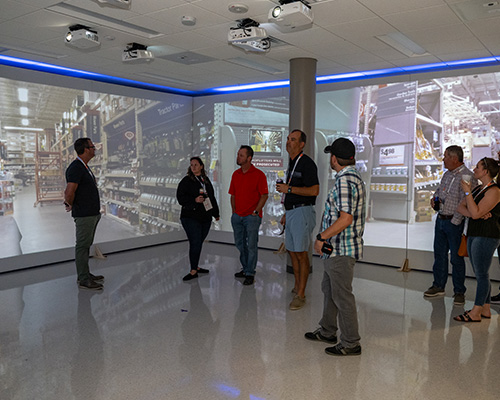
Offender Interviews
We get face to face with offenders of all experience levels, bringing them on-site in our Simulation Lab, Research Lab, or in a live Store Lab for pointed interviews. We collect their feedback and opinions on new anti-theft solutions and shadow offenders as they guide us through a specific store and reveal their thought processes.
Interested in participating in LPRC research? Click the button below.
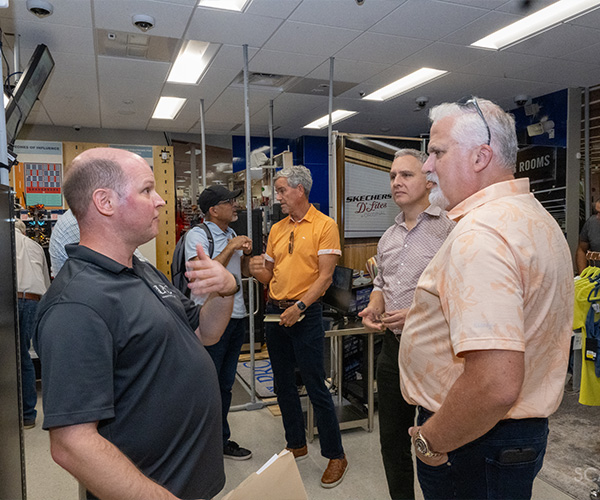
Randomized Controlled Trials
Randomized controlled trials are the gold standard of research designs because they provide a high level of confidence in the results. Subjects for experiments are randomly chosen from a population and assigned into one of two groups, one of which receives a “treatment,” such as a new technology or implementation of a new technique.
Interested in participating in LPRC research? Click the button below.
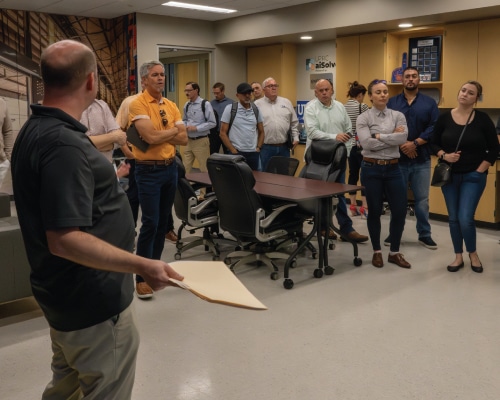
Benchmarking Surveys
One unique opportunity that the LPRC offers its members is a chance to benchmark with their peers through conversation and survey formats. Interested in how others are protecting a certain product? Wondering if stores with in-aisle ePVMs experience lower shrink? Each year we conduct several dozen surveys answering questions that come straight from our members.
Interested in participating in LPRC research? Click the button below.
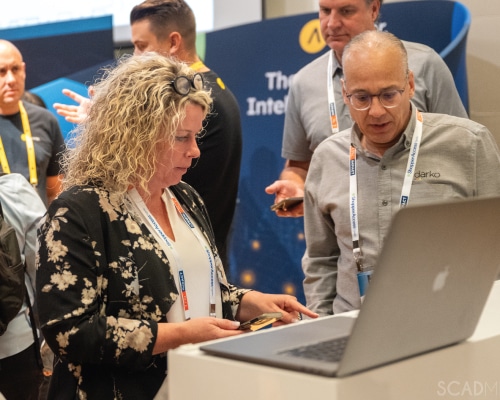
Quantitative Data Collection
What do you do with all the data your organization collects? Our Data Analytics Working Group equips LP professionals with tools and feedback to make the best use of their data — and the more data the better. Every year we compile information from numerous retailers and comb through them for statistically significant relationships and potential research initiatives.
Interested in participating in LPRC research? Click the button below.
Research
Knowledge Center
The LPRC Knowledge Center is a powerful resource hub that houses a wealth of AP/LP information including the results of all our research. It’s a great way to stay informed, grow your expertise, and find practical solutions to your retail security challenges.
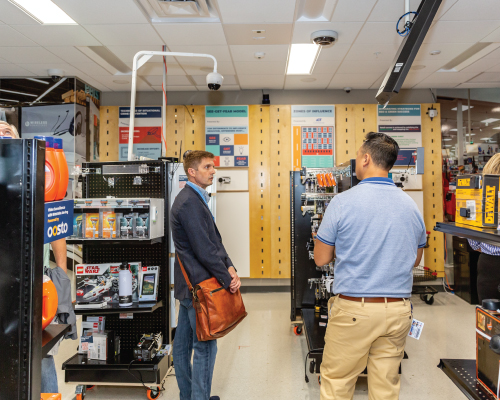

Research
Sharing Our Research
LPRC disseminates our research findings through publications, presentations, webinars, and other helpful channels. We want our work to reach the broadest possible audience and ultimately benefit the entire retail industry worldwide.
Members have access to the results of all our research.


